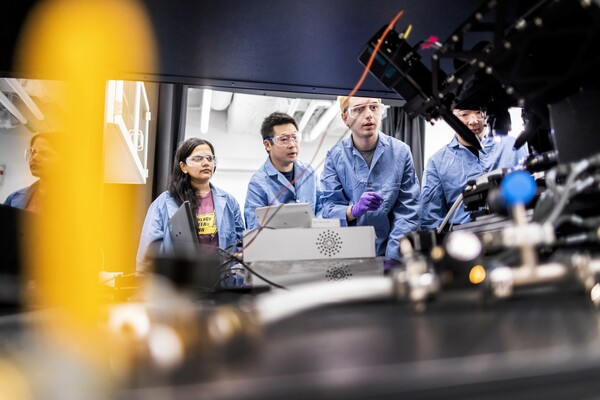
Image: Mininyx Doodle via Getty Images
Rajeev Alur and Randall Kamien of the University of Pennsylvania have been awarded five-year, $500,000 grants from the Simons Foundation, as part of its 2013 class of Simons Investigators.
Similar to the MacArthur Foundation’s “Genius Grants,” the prizes come from the nonprofit with no strings attached. They are intended to enable the researchers to undertake long-term study of fundamental questions in theoretical fields. Alur, a professor of computer and information science in the School of Engineering and Applied Science, and Kamien, a professor of physics in the School of Arts and Sciences’ Department of Physics and Astronomy, were among a class of 13 mathematicians, theoretical physicists and theoretical computer scientists who were awarded this year.
The foundation describes Alur as “a leading researcher in formal modeling and algorithmic analysis of computer systems” who has had a “great impact on both the theory and practice of verification.” In computer science, “verification” is the process by which programmers tediously weed out errors and determine whether the program works as intended. As programs become more and more complex, researchers like Alur are developing systems that are better able to check and correct themselves. To this end, he is leading a five-year, $10 million National Science Foundation project known as ExCAPE, or Expeditions in Computer Augmented Program Engineering.
The foundation describes Kamien as “a leading figure in the theory of topological effects in condensed matter physics, known for the mathematical rigor he brings to his work and in particular for the use of sophisticated and elegant geometrical methods to obtain insight into fundamental aspects of the structure of polymers, colloids, liquid crystals and related materials and into the topological defects occurring in these materials.” Kamien’s recent work has included collaborations with engineers in using liquid crystals as templates for nanofabrication and in applying principles of origami to the design of functional nano-structures.
Each grant comes with additional $100,000 that goes to the researchers’ department and university. At the end of the five years, the foundation will consider their work for an additional five years of funding.
Alur and Kamien join physics professor Charles Kane, who was among the inaugural class of Simons Investigators in 2012.
Evan Lerner

Image: Mininyx Doodle via Getty Images

The sun shades on the Vagelos Institute for Energy Science and Technology.
nocred

Image: Pencho Chukov via Getty Images

nocred